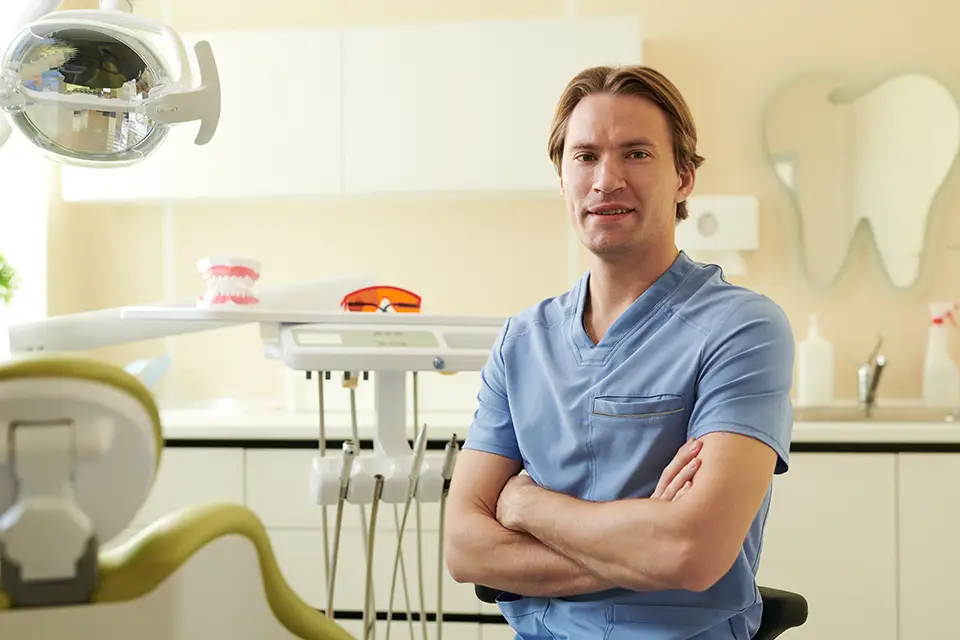Grinding teeth while sleeping, also known as bruxism, is a common problem affecting people of all ages, including children. At Sunshine Dentistry in Richmond Hill, Ontario, we see many patients seeking treatment for this condition, especially in our pediatric dentistry services. It is critical to treat bruxism early on to avoid further complications.
What Is Bruxism?
Bruxism is the involuntary grinding or clenching of teeth, usually while sleeping. It can happen without knowledge and frequently goes unnoticed until it causes damage or discomfort. This can affect people of all ages, and understanding the causes and effects is critical for seeking appropriate treatment.
Why Do People Grind Teeth in Sleep?
Several factors can influence why someone grinds their teeth while sleeping. These include:
- Stress or Anxiety: Emotional stress or anxiety is a leading cause of bruxism. When a person is stressed, their body may react by clenching or grinding their teeth while sleeping.
- Sleep Disorders: Conditions such as sleep apnea or snoring can cause grinding because the body reacts to disrupted breathing patterns.
- Malocclusion: Misaligned teeth can result in an unnatural bite, which causes grinding as the jaw attempts to correct the misalignment.
- Medications: Certain medications, particularly those for mental health issues, may have side effects that increase the risk of bruxism.
Effects of Grinding Teeth in Sleep
Bruxism can have serious long-term effects on oral health if left untreated. These include:
- Tooth Damage: Frequent grinding can wear down the enamel, resulting in tooth sensitivity, chipped or broken teeth, and tooth loss.
- Jaw Pain: Constant clenching can cause jaw soreness, resulting in temporomandibular joint disorder (TMJ) and chronic pain.
- Headache: Individuals who grind their teeth while sleeping are more likely to experience morning headaches due to jaw muscle tension.
- Sleep Disruption: People with bruxism may experience disturbed sleep patterns, affecting overall well-being and quality of life.
How to Identify If You Grind Teeth in Sleep
Often, people are unaware they grind their teeth while sleeping. However, there are several warning signs to look for:
- Worn or Flattened Teeth: Grinding may cause your teeth to appear shorter or flattened.
- Increased Tooth Sensitivity: Grinding can erode enamel, causing sensitivity to hot or cold foods and beverages.
- Morning Jaw Pain: Soreness or discomfort in the jaw upon waking may indicate nighttime grinding.
- Teeth Indentations on the Tongue: Grinding can leave indentations or imprints on the sides of the tongue.
Treatment Options for Grinding Teeth in Sleep

If you suspect you grind your teeth while sleeping, seek professional help immediately to avoid long-term damage. Here are some common treatment approaches:
- Nightguards: A custom-made nightguard is one of the most effective ways to prevent teeth from grinding against each other while sleeping.
- Stress Management: Because stress is a common cause of bruxism, using relaxation techniques like meditation, yoga, or therapy can help reduce grinding.
- Orthodontic Treatment: Orthodontic treatments such as braces can help correct the bite and reduce the likelihood of grinding for people with malocclusion.
- Medication: In some cases, muscle relaxants or other medications may be prescribed to help relieve the stress that causes bruxism.
Prevention Tips for Bruxism
While professional treatment is necessary, there are a few ways to reduce the likelihood of grinding teeth in sleep:
- Reduce Caffeine and Alcohol: These two substances can increase the likelihood of grinding at night.
- Create a Relaxing Bedtime Routine: A calm and relaxing bedtime routine can reduce stress and anxiety, making grinding less likely.
- Regular Dental Checkups: By scheduling regular dental visits, your dentist can monitor the condition of your teeth and detect early signs of grinding.
Frequently Asked Questions
Can children grind their teeth in sleep?
Many children experience bruxism, often during the early stages of teeth development. However, most outgrow it without permanent damage.
How is bruxism diagnosed?
Dentists can usually diagnose bruxism by looking for signs of wear on the teeth and discussing symptoms like jaw pain and headaches.
Is a nightguard comfortable to wear?
Custom-made nightguards are designed to fit comfortably, ensuring they don’t interfere with sleep or cause discomfort.
Can teeth grinding cause severe damage?
Yes, if left untreated, bruxism can lead to severe damage, including tooth loss, gum recession, and TMJ disorders.
Grinding your teeth while sleeping is a common condition that, if left untreated, can lead to serious dental problems. You can protect your teeth from damage by recognizing the symptoms, understanding the causes, and seeking appropriate treatment. Sunshine Dentistry in Richmond Hill, Ontario, provides custom solutions, such as mouth guards, to help patients manage their teeth grinding. Contact us today to schedule a consultation and learn more about how we can help.



